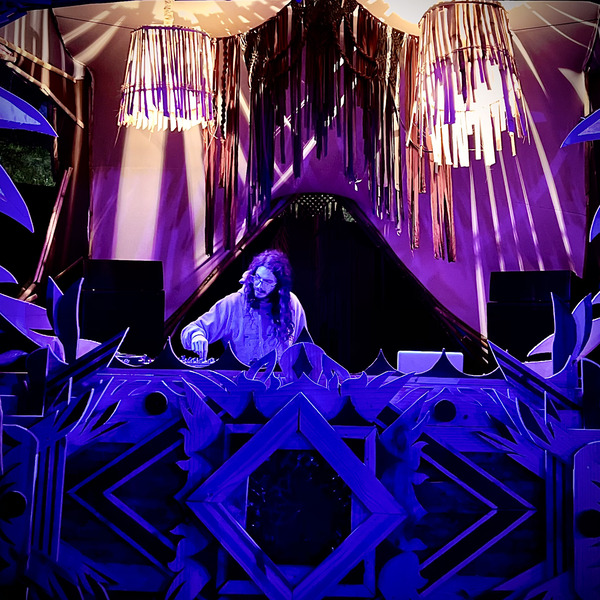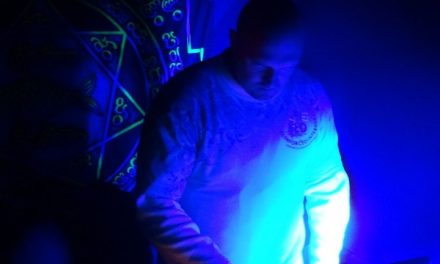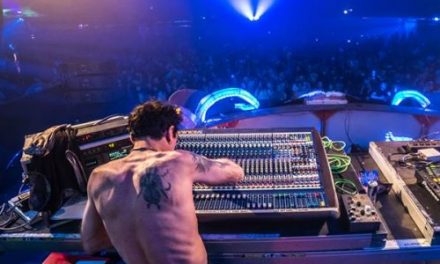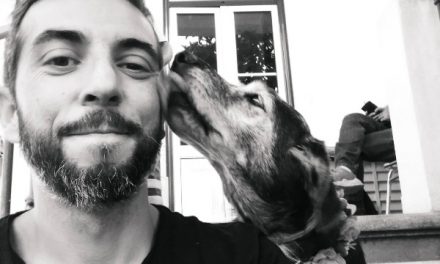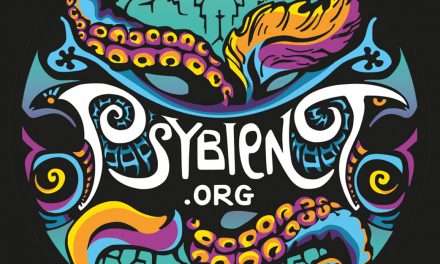‘Decorating time with music from the heart’ is a great definition of what Jose Ascui does, immersing the listener in a combination of synths, digital instruments and sample processing.
Dejalum is a music producer from Chile, and he creates Psydub, Psybass, Psychill, Glitch – Hop and Donw and Mid tempo. During the last years, he has released rooted and dreamy frequencies on a good number of labels, besides collaborations with artists of similar mindsets.
We are very happy to talk with him.
Interview by Shantiago on 15/02/24.
Hi Jose, how is it going? Thank you so much for finding some time to talk with us.
Hello Santiago, thank you very much for planning this interview. I am very happy to be sharing with you part of my experience of my job as a music producer. Everything is quiet here for the moment, finishing some new music and organizing a couple of presentations with Dejalum that are coming soon.
How is the summer going in Chile?
The summer here has been the hottest since I can remember. Luckily, I am now spending time near the coast, so the feeling of heat during the day decreases quite a bit. I haven’t had many parties to attend this summer, so this has made it easier for me to produce intensive music during this period.
Who is Dejalum? What’s the concept of the project? How was it born?
Dejalum is the musical project that I founded in Chile a little more than 3 years ago and that began to find its identity in 2021. The name of the project is basically an edition and transformation of the word “Dejavu”, only the final syllable changes for “lum”. “Deja”- “lum”. On the other hand, Lum is related to light in Latin, so “Dejalum” for me would be similar to what a Dejavu is, but in this case the stimulus that feeds the Dejavu is fundamentally of a luminous nature.
On the other hand, on a personal level I love to share the idea of Molecular Autopoiesis (Self-production of oneself at a molecular level), which is a concept developed by a Chilean scientist, Humerto Maturana. In the development of this idea, light is key. In summary, Humberto shows us that biological dynamics are not subject to information flows but respond to a historical coherence between biological beings and the environment in which they are found. That is, the environment evolves together with the various living beings that are in it. Therefore, the path or way of responding to the infinite stimuli of the various biological beings is already configured according to this historical coherence between the parts. And taking this idea, sunlight is key. It has been there for millions of years eroding the strands of our DNA
Could you tell us about your music journey before Dejalum? Either electronic or non-electronic.
2 years before Dejalum, I founded a musical project called “Oseas” that is along the lines of chillout & psybient. During that period began my arduous exploration and research into various DAWS and different musical tools and methods. Before Oseas, I only occasionally went to a festival in Chile or Brazil, which encouraged me to want to shape my own project. And well, from 2008 to 2018, I went through many bands, where I played the flute and sax, but none of those musical projects managed to float due to lack of musical maturity and discipline.
Since the beginning of Dejalum music in 2020, you have released quite a lot of music on several labels. Where do you get inspiration from?
Yes, I have had the luck and opportunity to show my music on various labels since 2020 and recently through Mindspring Music and Merkaba Music. Just since 2020 I built my studio and I produce in it for many hours, generally at night, but if I’m motivated I can produce at any time. That time of attention to my productions takes a lot of love and of course I do it with great pleasure. I feel a lot of joy when producing music, luckily I found what I wanted.
On the other hand, my fundamental inspiration comes from nature and simple things. For example; A walk through the forest or along the beach stimulates and ignites my productive process. There are other important factors that stimulate my inspiration such as doing circus training, listening to beautiful music from producers and musicians that I admire (of which luckily there are more and more), researching study methods in various instruments (flute, clarinet, saxophone and quena mainly). ), research on composition and musical theory, research on socio-biology and philosophy in general. From all those places that I mention, I take various elements that you can find in my music.
Do you find a strong metaphysical identity in styles like psychill or psydub?
Of course. In fact, I have some EPs that are composed around that idea. For example, one of my first EPs was Sanga, which was released by Australian label Tranquil Sounds Productions. In that EP you find 3 tracks, Calm, Protection and Transformation. First of all, Sanga comes from Sanskrit and roughly means “What unites and stays together”, and well the track titles allude to the three-brained ancestral mind pointed out by Claudio Naranjo, The Mother (Calma), the Father (Protection) and the child (Transformation). On the other hand, you have my album called “Life” that was released by the Fines Unity Verse Music label that has 6 songs that precisely pay tribute to what I can perceive as a deep reality. The track names are: Language, Existence, Dance, Organization, Movement and Present. After releasing “Life”, I released the EP titled “Entrelazamiento” on my own Chilean label called Quantum Cell Records. Entanglement refers to Quantum Entanglement, a type of mesh invisible to the naked eye that intertwines points regardless of distance or time. In this EP you find 4 tracks titled as follows; Telepathic Coherence, Pineal Bridge, toroidal DNA and Electromagnetic Root. Finally we come to my latest EP titled “Singularities” which was released by Mindspring Music. Singularities refers, as the title says, to singularities. As singularities I refer to events or situations that are apparently surprising, incredible and that they try to point out something to us with their exotic way of synchronizing.
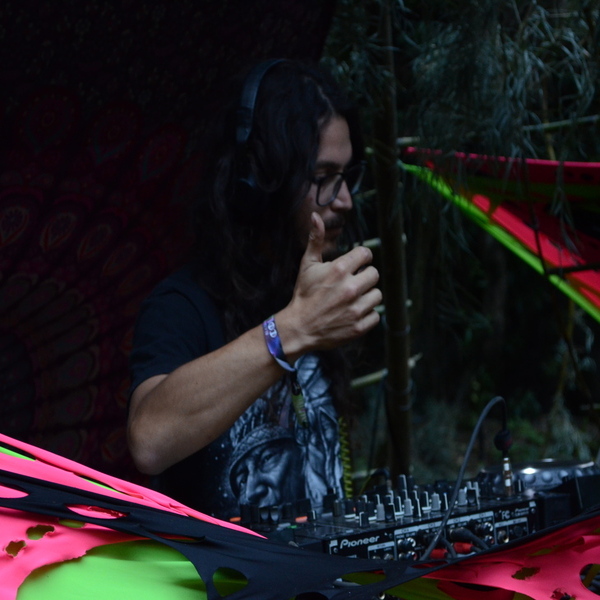
How do you organize your creative process? Are you very structured or do you leave space for creativity and improvisation?
I generally do a mix of both forms, half structured and the other half more free where improvisation and happy mistakes flow. I was trained as a Civil Electrical Engineer at the University, so you can imagine that the structured part is present but on the other hand, I love improvisation. I don’t have a fixed work schedule but I generally work from Monday to Sunday during the night shift, from 11 pm to 6 am. During that time I have very little distraction, here in Chile many are sleeping during that period and it is difficult to find any surprises. So the external stimulus is low and that means I can focus more strongly on what I do. In practical terms, when I produce a track, I have predefined the harmonic structure and vocal conduction as well as the base rhythm and base bassline. Once the base is built, I leave free spaces to write. I record flutes, saxes or some improvised melodic lines with a midi controller and I also leave an important space for sound design and synthesis.
What kind of gear do you like to use?
To produce I use ableton as a DAW and I love doing synthesis based on native tools like Operator and Wavetable. I also use a lot Serum and Vital for the synthesis of Bassline, And on the other hand, since I love instruments, I also use them a lot as I mentioned before. In particular the transverse flute and the sax. Now when I have to present live, I also use ableton, some controller and instruments.
Could we know a bit more about your collaboration with other artists? How did you connect with Dubnotic, Yonilinga, Nicoorion, or Aukan?
Sure. My view regarding collaboration generally is as follows. If I can produce alone, great! That is fundamental for me! But if I can collaborate, it would be wonderful. That’s important to me!. I love collaborating because it is an instance that invites you to listen to others and converge on a common point. Sometimes the process requires a lot of attention and depends a lot on the motivation of the parties. It is fundamental for me that this relationship exists, especially in the spheres of the art production profession. However, not everything is a wonderful rainbow. Of all my collaborations I had only one bad experience. This produces demotivation but the important thing is to get up, learn from these uncomfortable situations and move forward producing with the right people. Luckily the next collaborations were wonderful and beneficial and I already learned to partially protect myself from certain uncomfortable situations. A friend says: “I’ll take care of the fascists, but let God take care of the alternatives.”
With Dubnotic we connected through social networks, I don’t remember if he or I wrote first but we started by co-producing a track and in a little over a month we already had 5 tracks finished. I think it was the fastest, most energetic and most motivated work I have done so far. I loved co-producing with Dubnotic. Martin has a lot of energy and we hit it off instantly. We have plans to co-produce more music in the future. Regarding Flip Yonilinga, we connected because I loved his first album and told him about my gratitude. Shortly after that we began to co-produce music, and similar to what was with Dubnotic, in a very short time we had written 2 beautiful tracks that were released on their latest album by Merkaba Music “Ouro sobre Azul”. I loved co-producing with Flip, the musical flow was wonderful. We also have plans to continue producing music collaboratively.
Regarding Nico, we became friends when we went to a festival in the desert for an eclipse that occurred in Chile in 2018 if I’m not mistaken. At that point we shared a lot and decided to create our own label. This label is called Quantum Cell Records. With Nico we are very good friends and we are lucky to live relatively close so it was and is possible to get together physically and co-produce.
And well, finally with Sebastián Aukan, we were lucky enough to meet at a festival in Brazil called Universo Paralelo. At that time I wasn’t producing electronic music but I wanted to learn. Sebastián was key in my development because he pointed me to excellent material to research on the use of ableton. In that instance Sebastián presented his music on the Chill out stage and well, after a couple of years we decided to collaborate because at that point our knowledge was already more balanced. It was a remote collaboration because Sebastián lived in the north of Brazil.
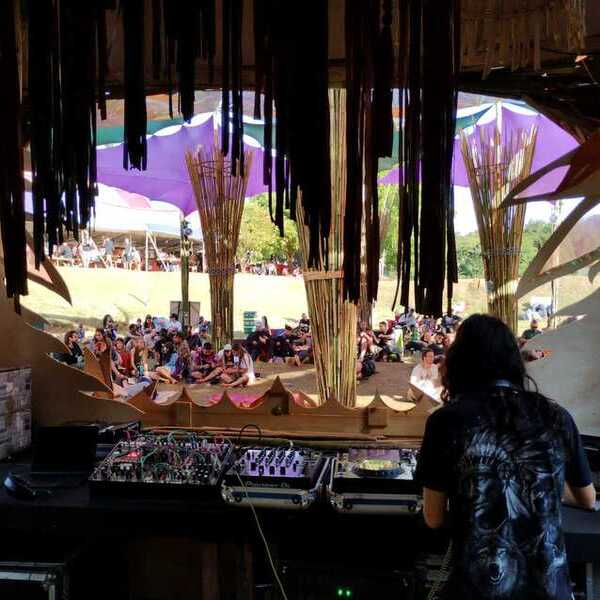
What are your near future plans? Are you planning to tour a bit, sharing your music?
Regarding presentations, in March, April and May I have presentations scheduled in Chile and in August in Portugal. It is the first time that I will take my music to Europe and at the moment I have only gotten one date but surely more instances will arise in the future. I would love to be able to present my music in more places in Europe, without a doubt.
How is the down and mid-tempo scene in Chile? Is there a connection between artists and spaces to perform?
The midtempo scene is very small in Chile. To listen to styles like psydub, psybass or psychill, you will find at most 2 or 3 festivals per year that cover those lines. One big and the rest small. Chile is a small country that has about 20 Million people and the largest festival of all brings together up to 3000 people. I don’t know another psydub or psybass producer in Chile. In fact, I maintain a limited and intimate circle with respect to the artists and party producers with whom I interact in Chile.
And before finishing, who is Jose as the human behind Dejalum?
I am a human being who loves nature and animals. My job is as a music producer and my hobby is as an electrical engineer. I love philosophy and mathematical problems of the logical, geometric and arithmetic type. I always had a great curiosity about numbers and symbols until today. They will always be a great source of entertainment for me. I also love doing classes for other people. I teach mathematics classes at school and university and now I teach a music production course through my platform called “Autopoiesis Academia de Audio” (https://www.instagram.com/autopoiesis.academia.audio/). I also love gardening and planting. I learned to walk in a small town on the outskirts of Santiago, called Valdivia de Paine. I lived there with my 2 brothers, mother and my grandparents. My grandfather was a farmer all his life and as a child I always helped him with field work. I love it but he never wanted us to do that. However, to this day I plant trees, grow my vegetables and process my fruits. My grandmother on the other hand, taught me about her flowers and succulents. I learned from her how to find the smallest seeds you can imagine and also the cutting or pin technique to clone plants.
Without the love of María, my Mother, Daniela, my girlfriend, and my entire family none of this would be possible.
Would you like to deliver a message to the psybient.org listeners, readers, and believers?
Of course, thank you very much for the opportunity. I would like to tell the listeners, readers, and believers that I am very grateful that they have reached this point where I have shown myself more openly both as a human being and as a music producer. This year I have some surprises planned for you. At least 2 EPs, an album and some tracks that will be part of various compilations. Thank you for supporting my project, I hope to be able to develop it more strongly this year.
Trust your vision.
With love, Jose.
Thank you so much for sharing your insights. We will keep enjoying listening and dancing to your diversity of releases, and looking forward to what’s next. Un fuerte abrazo, ¡nos vemos pronto!
Listen and follow Dejalum:
https://soundcloud.com/d3j4lum
https://open.spotify.com/artist/5bl2W1EgB2L6TUUECFeH45
https://www.beatport.com/artist/dejalum/911699
https://music.apple.com/us/artist/dejalum/1496423006

